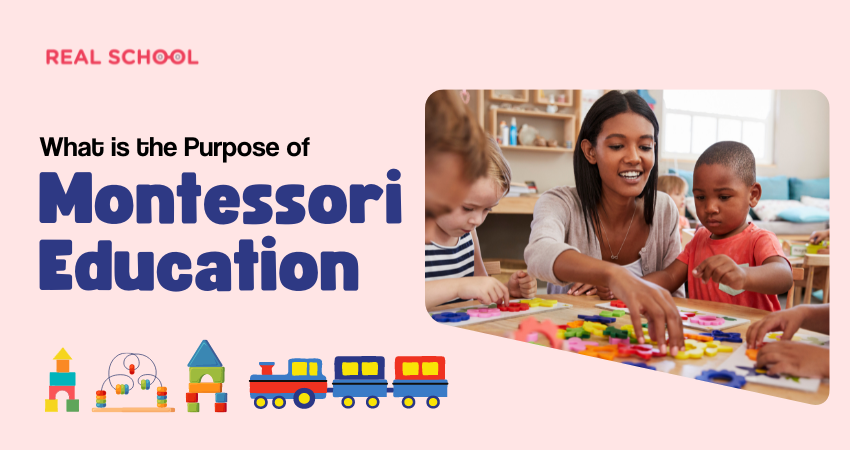Montessori education, a revolutionary pedagogical approach developed by Dr. Maria Montessori, transcends traditional teaching methods to provide a unique and profound learning experience for children. At the heart of Montessori education lies a clear and distinct purpose: to foster independence, self-directed learning, and holistic development in children. In this article, we will delve into the core purpose of Montessori education, its principles, and the transformative impact it has on students.
The Foundation of Montessori Education:
The purpose of Montessori education is deeply rooted in understanding and respecting the innate potential of every child. Dr. Maria Montessori believed that children are active participants in their own learning and possess an inherent curiosity and desire to explore the world around them. The Montessori method is designed to nurture and amplify these natural tendencies, providing a framework that aligns with the developmental needs of children.
Key Elements of the Purpose:
Fostering Independence: One of the primary goals of Montessori education is to cultivate independence in children. By creating an environment that empowers them to make choices, solve problems, and engage in tasks on their own, Montessori education equips children with essential life skills that extend far beyond the classroom.
Self-Directed Learning: The purpose of Montessori education is to inspire a love for learning that is self-motivated and lifelong. In a Montessori classroom, children are given the freedom to explore subjects that resonate with them, encouraging a sense of ownership over their education and a natural curiosity to explore various topics.
Holistic Development: Montessori education emphasizes the holistic development of the child. Beyond academics, it nurtures emotional intelligence, social skills, and character traits such as empathy, respect, and responsibility. This approach ensures that children emerge not only as academically proficient individuals but also as well-rounded and compassionate human beings.
Prepared Environment: Montessori classrooms are carefully prepared environments that serve as an extension of the home. Every element, from the arrangement of materials to the organization of space, is purposefully designed to stimulate learning and encourage independent exploration.
Respect for Individuality: Montessori education celebrates the uniqueness of each child. The purpose is to provide tailored learning experiences that cater to individual learning styles, interests, and developmental stages. This personalized approach acknowledges that every child learns and grows at their own pace.
Impact on Students:
The purpose of Montessori education has a profound impact on students’ development and learning outcomes. By providing an environment that respects their autonomy and innate abilities, Montessori education empowers students to:
- Develop a strong sense of self-confidence and self-worth.
- Cultivate critical thinking skills and problem-solving abilities.
- Embrace a growth mindset that values effort and exploration.
- Develop a love for learning that extends beyond the classroom.
- Form deep connections with their peers through collaborative learning experiences.
- Learn to manage their time, set goals, and make informed choices.
- Develop empathy, compassion, and a sense of responsibility toward others and the environment.
- The Relevance in Today’s Education Landscape
Also Read: Montessori for Children with Special Needs: The Right School for Education
In a rapidly changing world, the purpose of Montessori education remains highly relevant. The emphasis on fostering independent thinkers, problem solvers, and responsible citizens aligns with the skills and qualities needed in the 21st century. As technology continues to reshape various aspects of society, Montessori education equips students with the ability to adapt, innovate, and contribute meaningfully to their communities.
Conclusion: The purpose of Montessori education transcends the confines of traditional education. By focusing on fostering independence, self-directed learning, and holistic development, Montessori education equips children with the tools they need to thrive in a dynamic and ever-evolving world. The transformative impact of Montessori education extends far beyond the classroom, shaping students into confident, curious, and compassionate individuals who are well-prepared to embrace the challenges and opportunities that lie ahead.







